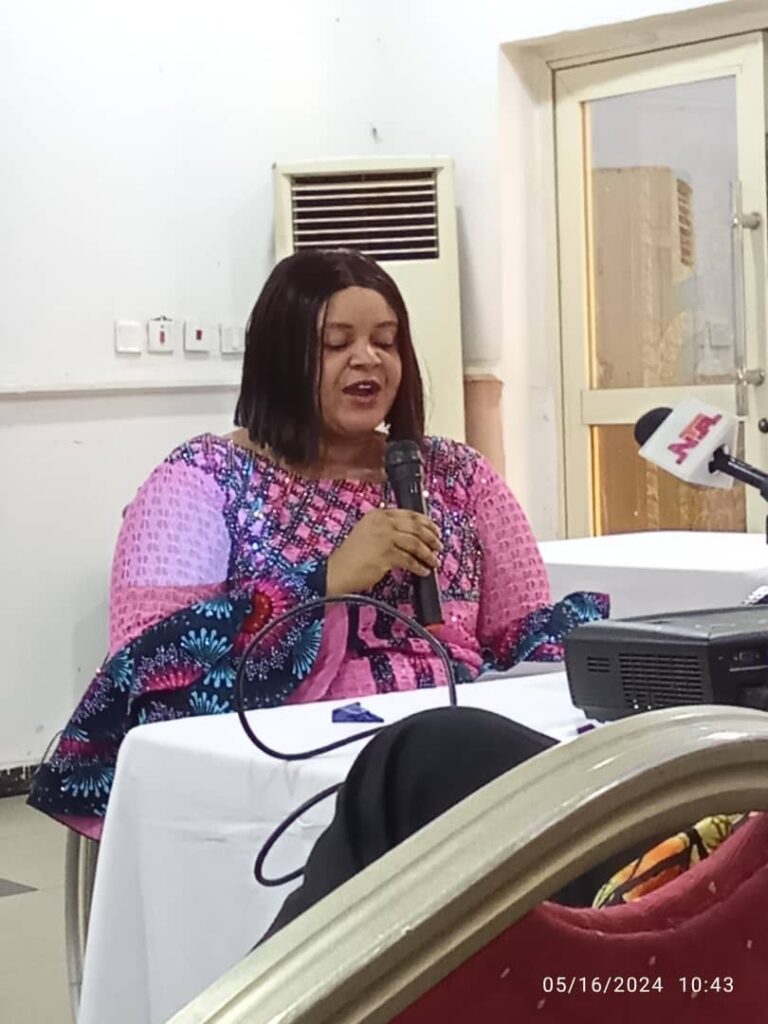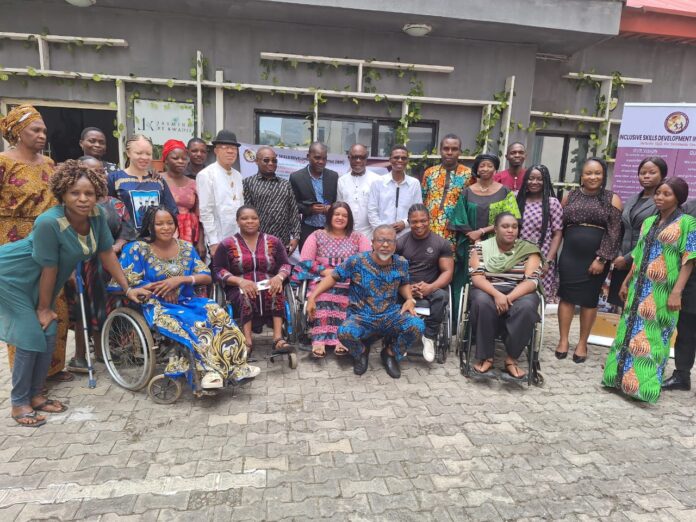Abuja, May 16, 2024 – The Inclusive Skills Development Initiative (ISDI) organized a landmark one-day stakeholders engagement in Abuja on Thursday, focusing on the implementation of the Discrimination Against Persons with Disabilities (Prohibition) Act, 2018.
The event brought together some key leaders from the disability community, government ministries, departments, agencies (MDAs), and civil society organizations (CSOs) to strategize on advancing disability rights in Nigeria.
Mrs. Angelina Ugben, Executive Director of ISDI, opened the event with a powerful speech emphasizing the critical importance of the engagement. “I am honored to stand before a group of dedicated individuals and organizations committed to the noble cause of advancing the rights and participation of persons with disabilities in our nation’s leadership,” she declared.

Reflecting on the passage of the Discrimination Against Persons with Disabilities (Prohibition) Act in 2018, Ugben highlighted its significance. “This Act was not just a piece of legislation; it was a beacon of hope for over 25 million Nigerians with disabilities, promising them a future of equality, respect, and dignity,” she said.
The event was not merely a discussion on the Act’s implementation but an urgent call to action to dismantle barriers faced by persons with disabilities. Ugben underscored the challenges that have persisted since the Act’s passage, including limited awareness, inadequate resources, and ongoing accessibility issues. “These challenges only strengthen our resolve to push forward,” she noted.
The National Commission for Persons with Disabilities has been at the forefront of championing the rights of persons with disabilities. The collaboration at this workshop, supported by the International Federation of Women Lawyers (FIDA) Nigeria and sponsored by the MacArthur Foundation, exemplifies a collective commitment to inclusivity.
Ugben set the tone for the workshop’s primary goal: developing a robust framework for tracking and monitoring the implementation of the Act. “This framework will serve as our compass, guiding us towards the full realization of the Act’s objectives and ensuring that the rights it enshrines are not just words on paper, but lived experiences for our fellow citizens with disabilities,” she emphasized.
Despite the Act’s promise, persons with disabilities in Nigeria continue to face significant challenges. Employment discrimination remains a stark reality, with many capable individuals being overlooked due to misconceptions about their abilities. Public infrastructure and services, which should be accessible to all, still present barriers that prevent full participation in society. “These issues are not just inconveniences; they are infringements on the rights and freedoms that every Nigerian deserves,” Ugben stated.
Ugben called upon all stakeholders present—government officials, civil society leaders, business owners, and community advocates—to commit to tangible action. “We must work collaboratively to dismantle these barriers, whether they be physical, social, or systemic. Our efforts must result in tangible changes: workplaces that welcome diverse talents, cities that are navigable for everyone, and services that cater to all needs,” she urged.
The event’s facilitation was led by Barr. Theophilus Odaudu, a renowned expert in disability-inclusive development, who guided the discussions and activities throughout the day. The engagement aimed to produce a clear plan, defined responsibilities, and measurable goals, setting a new standard for inclusivity and equality.
In her concluding remarks, Ugben issued a powerful call to action. “Let this dialogue be the catalyst for change. Let us emerge with a clear plan, defined responsibilities, and measurable goals. Together, we can ensure that the promises of the Disability Act are not just fulfilled but are surpassed, setting a new standard for inclusivity and equality. Your actions today will echo in the lives of millions, now and in the future,” she declared.
Ugben also acknowledged the contributions of key actors in disability inclusion in Nigeria, including Dr. James Lalu, Executive Secretary of the National Commission for Persons with Disabilities, Dr. Ayinla Bashiru Dawodu, Chairman of the House Committee on Disabilities, and other members.
The event stands as a significant step forward in the journey towards a more inclusive Nigeria, reflecting a collective resolve to transform the promises of the Discrimination Against Persons with Disabilities (Prohibition) Act into reality.


